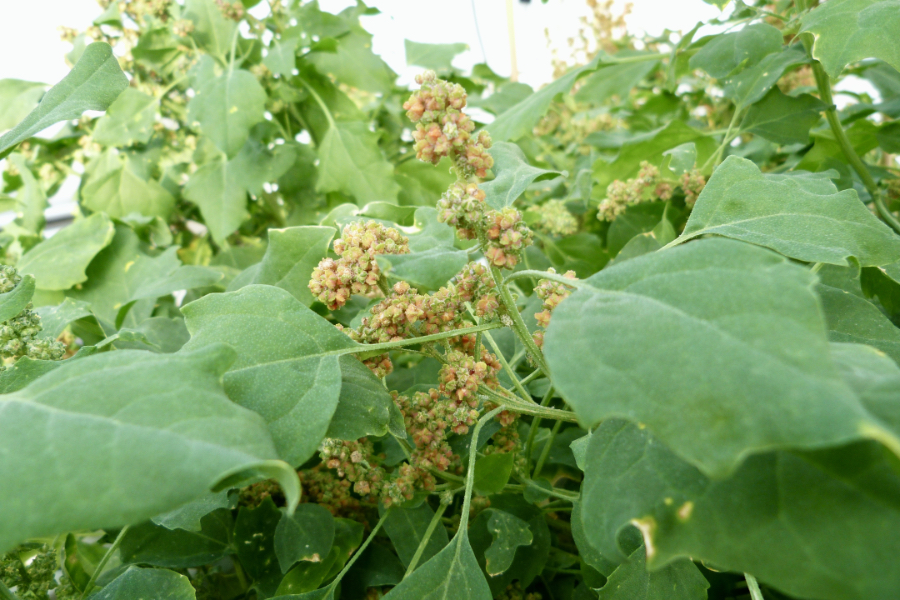News
- New publication on the importance of potassium in stress tolerance
Former IAPN scientist Dr. Ariel Turcios has published, jointly with Junior Professor Dr. Merle Tränkner, recent research on the importance of potassium in quinoa salt stress tolerance.
Quinoa is considered a very valuable crop as it has highly beneficial nutritious properties, which makes it favorable for both human consumption and animal nutrition. Being a halophyte, quinoa (Chenopodium quinoa Willd.) has another important property, which is its salt stress tolerance. Hence, quinoa can be grown on salt affected land and thereby maintain a certain productivity on degraded soils.
Salt is degrading one-fifth (20 percent) of the world’s irrigated land causing tremendous economic losses in agricultural production. The high salt concentrations, mainly induced by the excess of sodium and chloride ions (Na+ and Cl-) in the soil, lead to nutrient disturbances in plants impairing the transport and availability of essential nutrients, such as potassium (K).
K is an essential plant nutrient being involved in numerous plant physiological functions, such as the regulation of turgor-driven processes like stomatal movement and cell elongation. Besides, cellular K homeostasis was found to be essential for salinity tolerance.
In order to study the importance of K in mitigating salt stress in quinoa, an experiment with different K supply levels and different salt concentrations was carried out. Different physiological parameters were assessed during the growth of quinoa plants. The key outcomes were:
- Under salt stress, K uptake was increased when being supplied in enhanced concentration.
- An adequate supply of K under salinity conditions benefited the plant growth.
- High salt concentrations reduced the stomatal density, most likely as a strategy to control transpiration.
- Enhanced K supply under saline conditions resulted in higher biomass water-use efficiency.
The study showed that the tolerance against salt stress increases with increasing K doses in the culture medium. By enhanced uptake of K under saline growth conditions favorable K/Na ratios are maintained which serves as a mechanism to avoid salt stress.
Therefore, K is important to reduce salinity caused damage while enhanced supply has the potential to increase or at least to maintain crop productivity. Consequently, adequate doses of K are highly recommended in quinoa cultivation under saline conditions. Our results can serve as a basis for further studies, considering mineral nutrition as an important key for salt tolerance and thus optimizing crop productivity under saline conditions.
The results are published in the article entitled "Potassium, an important element to improve water use efficiency and growth parameters in quinoa (Chenopodium quinoa) under saline conditions" in the Journal of Agronomy and Crop Science. The study was co-authored by Professor Dr. Jutta Papenbrock of the Institute of Botany at Leibniz University Hannover.








